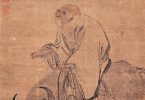Scientists in Hong Kong appear to have mapped out a formula that can delay the ageing process in mice, a discovery they hope to replicate in people.
In that research, the team at the University of Hong Kong found that a mutation in the Lamin A protein, which lines the nucleus in human cells, disrupted the repair process in cells, thus resulting in accelerated ageing.
Conversely, in their latest work using both mice and experiments in petri dishes, they found that normal and healthy Lamin A binds to and activates the gene SIRT1, which experts have long associated with longevity.
“We can develop drugs that mimic Lamin A or increase the binding between Lamin A and SIRT1,” Liu Baohua, research assistant professor of biochemistry at the University of Hong Kong, told a news conference on Thursday.
The team went further to see if the binding efficiency between Lamin A and SIRTI would be boosted with resveratrol, a compound found in the skin of red grapes and other fruits, which has been touted by some scientists and companies as a way to slow ageing or remain healthy as people get older.
Associate professor Zhou Zhongjun, who led the study, said healthy mice fed with concentrated resveratrol fared significantly better than healthy mice not given the compound.
“We actually delayed the onset of ageing and extended the healthy lifespan,” Zhou said of the mice.
Mice with progeria lived 30% when fed with resveratrol compared with progerial mice not given the compound.
As a result of extensive news coverage, sales of supplements greatly increased in 2006. This was despite the existence of studies cautioning that benefits to humans are unproven.
Supplements vary in purity and can contain anywhere from 50 percent to 99 percent resveratrol. Many brands consist of an unpurified extract of Japanese knotweed (Polygonum cuspidatum), an introduced species in many countries. These contain about 50% resveratrol by weight, as well as emodin, which, while considered safe in moderate quantities, can have a laxative effect in high amounts. Resveratrol can be produced from its glucoside piceid from Japanese knotweed fermented by Aspergillus oryzae.
Harvard University scientist and professor, David Sinclair, is often quoted in online ads, however, Sinclair, who has studied resveratrol extensively, has gone on record in Bloomberg Businessweek to say he never uttered many of the statements attributed to him on these sites.






